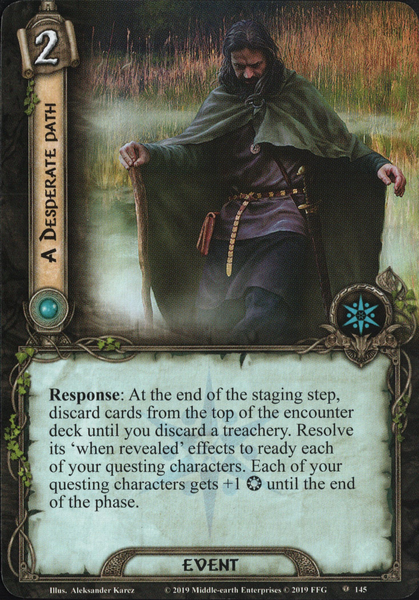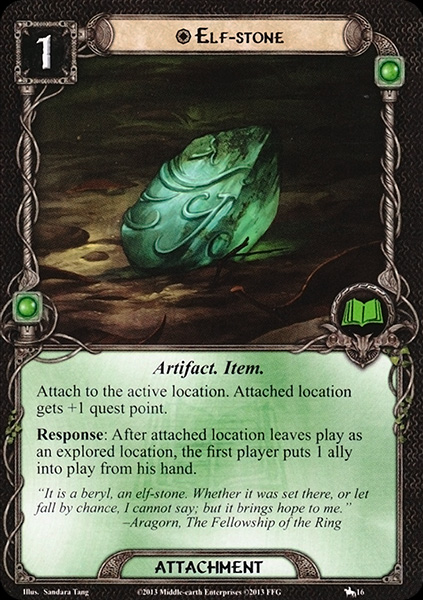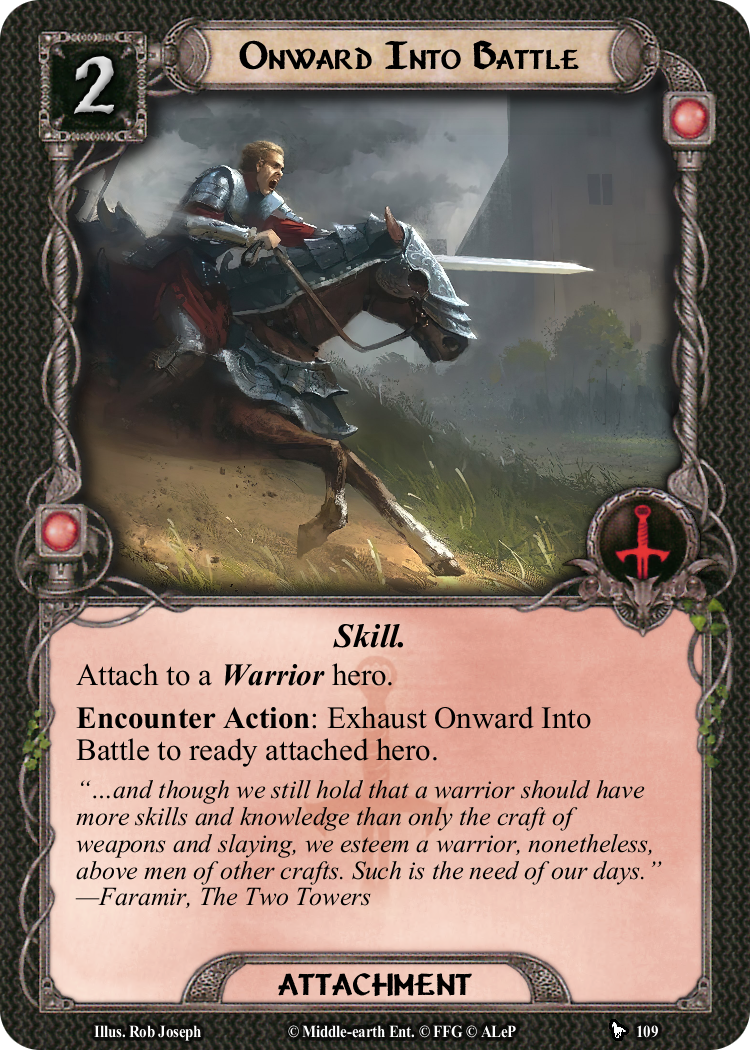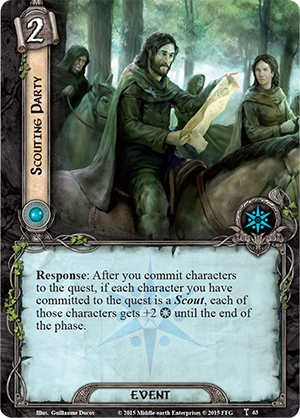If this isn't my favorite location control card, it's pretty close. Sure, it doesn't put progress on locations like a Northern Tracker, Asfaloth, or other similar cards. However, has a lot of other things going for it:
First, it is in Leadership, whereas most location control is in Lore or Spirit. This makes it available to decks that otherwise wouldn't be able to include location control at all.
Second, it is inexpensive. It is easy to get out early even in multisphere decks (unlike Northern Tracker or its ilk). It does cost you a character action, but there are plenty of characters that don't do that much after coming into play. Great targets include Snowbourn Scout, Herald of Anórien or an extra Errand-rider.
Third, encounter decks don't tech against it very much. There are plenty of quest cards and locations that prevent direct progress on staging area locations. Other than cards that are straight up immune to player card effects, cards don't tend to hinder this effect.
Fourth, it is useful in almost every quest. There are always locations that you would rather not see, whether it is because of high threat, bad travel effects, bad while in play effects or otherwise. This allows you to get them out of staging and replaced with something easier.
Fifth, it is absolutely great tech against certain quests. This at least makes this worth of a side board spot in decks. This card really shines in any quest that puts tokens on locations -- whether that's damage in Celebrimbor's Secret or Raid on the Grey Havens, time counters in The Antlered Crown or mire tokens in The Passage of the Marshes. In all these quests, the tokens are time bombs waiting to go off and cause bad effects, and Mariner's Compass can reset the timer on a location. Also, it can free up guarded cards from locations in any quest that has them (or for any player deck that runs them).




